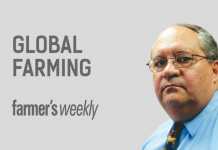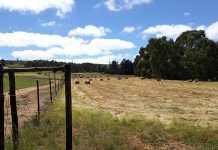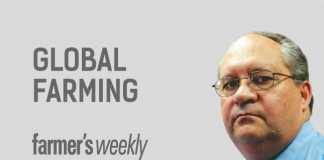The SA economy weathered the 2008 recession fairly well and positive growth followed in 2009. However, since then, various factors show that the recovery won’t be sustained. ‘Official’ unemployment – which excludes those who have become discouraged and are no longer seeking jobs – is at an unprecedented 25,5%, in spite of the creation of 125 000 jobs in the year to June 2012. Total employment is still lower than before the recession.
The government’s total loan debt has increased to 39,2% of GDP. We constantly import more products than we export, and the trade balance (difference between exports and imports) for the second quarter of 2012 is at R76 billion, compared to R26 billion in the second quarter of 2011. In addition, SA performed dismally in international ratings for corruption and education. Labour unrest has resulted in the Marikana disaster and the politically-motivated De Doorns strike.
In December, Moody’s changed the credit rating for South Africa’s banking sector to ‘negative’, mainly because the banks hold sizeable government bond holdings. The political uncertainty that resulted from an ‘absent government’ in the run-up to the ANC’s Mangaung conference put further pressure on the economic system. There’s no doubt about it – South Africa faces serious problems.
Saving the day
The UN’s Food and Agricultural Organisation (FAO) publishes an annual report on the global agricultural sector called ‘The State of Food and Agriculture’. In its 2012 issue, the relationship between agriculture and the reduction of poverty and hunger and the promotion of sustainability is examined. According to the FAO, “investing in agriculture is one of the most effective strategies for reducing poverty and hunger and promoting sustainability.”
Farmers are the largest source of investment in agriculture in low- and middle-income countries. On-farm investment
is more than three times as large as all other types of investment combined, and four times as large as government investment. As investment per worker increases, agricultural GDP per worker also increases. The total agricultural capital per worker increases in high-income countries and decreases in low- and middle-income countries, with sub-Saharan Africa showing an average reduction of 0,6% per year from 1980 to 2007.
More money
Higher investment in agriculture will result in increased productivity and growth. As farmers are the major investors in agriculture, it’s government’s task to facilitate and maintain a climate that promotes this investment. Without property rights (including mineral and water rights) and the guarantee that expropriation of land will only occur with proper legal processes and at fair prices, farmers will not keep on investing in agriculture.
There are already warning signs of a slowdown in agricultural investment. In real terms, total investment in agriculture in South Africa grew by 3% per year from 2005 to 2011. But growth from 2008 to 2011 was only 0,5% per year. Countries that spend a higher percentage of their budgets on agriculture have higher growth rates and more food security. Furthermore, various studies over many years clearly show that public investment in agricultural research and development yields very high returns in terms of agricultural productivity and poverty reduction.
Rethink needed
In South Africa, agriculture is allocated 0,6% of the national budget, excluding the provincial budgets. In Africa there are few countries where agriculture gets 10% or more of the national budget. The importance of agriculture, and especially research and development, needs a rethink on government level. Without serious attention to the public research and development institutions, SA agriculture won’t be able to compete internationally.
The FAO report once again highlighted the importance of agriculture in the total economy. It’s now up to the government. Its actions will decide whether South Africa remains a food-secure exporter or if we become a donor-dependent food importer. Farmers are willing and able to invest in agriculture, but they need some encouragement from government.
Dr Koos Coetzee is an agricultural economist at the MPO. All opinions expressed are his own and don’t reflect MPO policy. Contact Dr Coetzee at [email protected]. Please state ‘Global farming’ in the subject line of your email.



